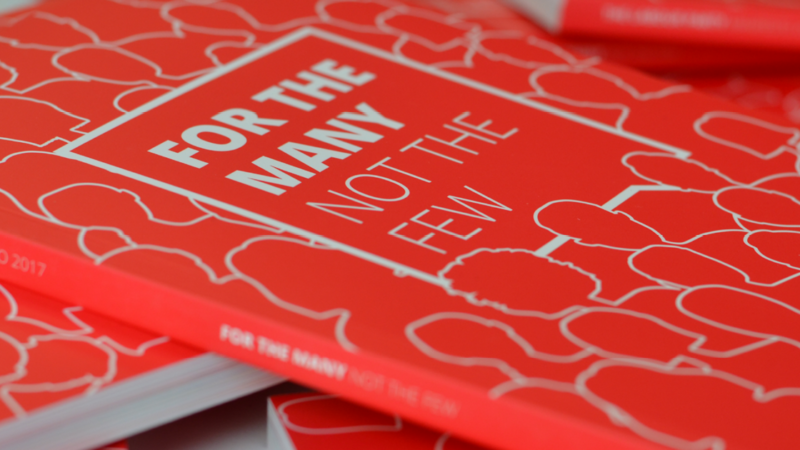
Labour conference 2019 kicks off tomorrow, and there will be no shortage of materials for debate. Rule changes on party democracy, the proposal to abolish private schools, a four-day week, the immigration motions that have been split into two categories, making it less likely that either will be debated – and a whole lot more. So far, the media focus has been on Brexit. Does Labour have a clear position? What is it? Could Jeremy Corbyn really stay neutral in a second referendum campaign? Will members (pro-Remain) or unions (pro-’let’s see what the deal looks like first) get their way?
But there is a huge, meaty row that has been overlooked: Labour for a Green New Deal’s motion. At first, it was widely assumed that this was a genuine campaign but also a helpful distraction for the leadership, diverting attention away from Brexit. That is not the case on closer inspection. The motion was the most favoured by local parties, with a whopping 128 sending it to conference. How many of them realised just how ambitious the target proposed is considered to be, and how challenging it is to the party leadership and a number of trade unions?
The FBU’s Matt Wrack writes for LabourList today, on the back of his union proposing its own Green New Deal motion. Its key aims are the democratic public ownership of banking and finance, which would offer economic leverage in the fight against the climate crisis, and legislation that would allow workers to take action on political issues such as this one. (There is currently no right to strike for climate.) As his piece points out, firefighters are on the frontline, as their working lives are acutely affected by wildfires and flooding. But that is where the difference lies: the FBU doesn’t have workers in the energy industry, whose jobs would be cut – it is argued by unions such as Unite and GMB – even with Labour’s current 2050 net-zero carbon target.
The detail in the motion that many activists seem to have missed is that Labour for a GND is calling for a zero carbon by 2030 target. That’s not just a date change – it’s taking out the crucial “net” part. Even Extinction Rebellion isn’t demanding a zero carbon economy, but instead an accelerated ‘net zero by 2025’ objective. Opponents of the LabGND motion are worried about the pressure Labour could be under to go into an election with a policy that would force people to abandon cars and beloved pets according to unions. (LabGND supporters say the line about pets is a myth.)
It is expected, then, that the proposal will be watered down in the ‘compositing’ process (when motions are merged), though the assumption that delegates can come to a compromise is questionable. The two sides seem unwilling to find a middle ground at the moment. LabGND campaigners argue that this is something we have to do, as part of reparations to the global south. And they are backed by FBU and CWU. Yet opposed unions, who are already making huge efforts to get their geographically disparate members united behind a Brexit policy, aren’t convinced even of net-zero by 2030. Like Brexit, this debate may have to be conducted on the conference floor.
Arriving in Brighton on Saturday? Kick off your conference experience with our flagship rally, sponsored by Unite, featuring top speakers such as John McDonnell. Our theme is ‘rebuilding Britain’, on which Newham mayor Rokhsana Fiaz has based her great piece for LabourList today. RSVP via the Facebook event.
Sign up to LabourList’s morning email for everything Labour, every weekday morning.



More from LabourList
MPs, union leaders and organisations react to ‘bruising’ Gorton and Denton result
A gory night for Labour
‘SEND reforms are a crucial test of the opportunity mission’